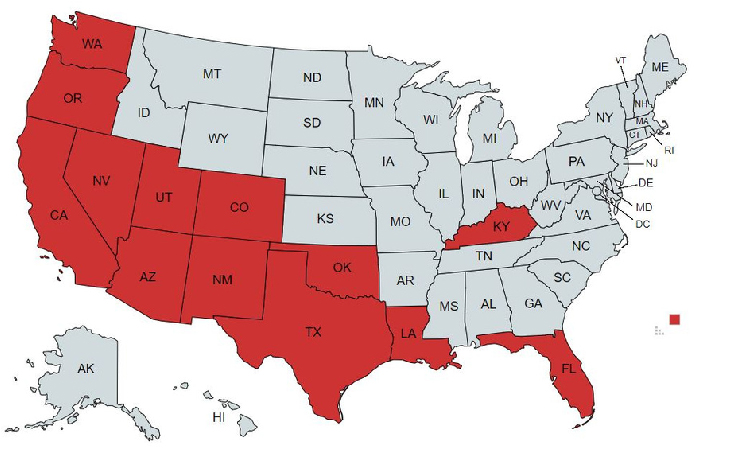
Territories We Serve: AZ, CA, CO, FL, KY, LA, NM, NV, OK, OR, TX, UT, WA


Territories We Serve: AZ, CA, CO, FL, KY, LA, NM, NV, OK, OR, TX, UT, WA
Today, we’re demystifying a crucial aspect of insurance – insurance audits. Whether you’re a business owner or an individual policyholder, understanding insurance audits is essential for staying compliant and avoiding costly surprises. Today i will discuss what insurance audits are, when they apply, the types of policies subject to audits, and the consequences of neglecting them. Let’s dive in.
An insurance audit is a process that insurance companies use to verify the accuracy of policyholders’ information, such as payroll, sales, or other factors relevant to the insurance coverage. If your policy is rated on a specific factor, it may be auditable.
Insurance audits typically apply to policies that are based on variable factors, like workers’ compensation, general liability, and commercial property insurance. These audits are conducted annually or at specific policy renewal periods. The carrier wants to make sure the projected or estimated amount on the application matches the actual amount at the end of the year. Here is an example- If you are an electrical contractor and you sign a contract to install 100 ceiling fans in an apartment complex and you price the job for 100 ceiling fans you expect to be paid for 100 ceiling fans. But what if at the end of the job it ended up being 110 ceiling fans? Well then you want to be paid for 110 fans. Insurance works the same way.
1. Workers’ Compensation: Audits assess payroll to determine the appropriate premium based on employee classifications and wages. The carrier wants to make sure the actial payroll at the end of the year matches the estimated payroll from the beginning of the year. If it doesn’t, there can be a credit or a balance due. In our agency we try to set up all of our clients on payroll reporting to reduce or eliminate over paying or large bills due at the end.
2. General Liability: Audits evaluate the nature of your business operations and annual revenue or payroll depending on how the policy is rated. If your payroll or sales end up higher, you could owe money at the end of the year. For General Liability you can lower your risk with quarterly reviews to see if your business is on track with the beginning of the year estimation.
3. Commercial Property: Audits assess the value of your insured property and any changes in its use. Property audits work the same way. If your property values are higher then estimated you could have some premium due here as well. So having the quarterly reviews can help mitigate the risk.
It typically involves the insurance company requesting documentation and records related to the audited policy. This may include payroll records, financial statements, and other relevant documents. The audits can happen typically in one of 3 ways:
1. Online or mail audit- for online or mail audits you will just send the carrier the requested documents and fill out a short survey about your business. The auditor will then analyze the results to see if you were more, less or the same
2. Telephone Audit- for a little larger more complex businesses they may do a telephone audit. They will typically ask you to send the relevant documents in the follow up with a telephone interview to ask about your operations. Then the auditor will analyze the results to see if you were more, less or the same.
3. In person Audit- For even larger and/or more complex operations they can do in person audits. The process will be the same as a telephone interview, with the addition of possibly walking your business to view the operations. Then the auditor will analyze the results to see if you were more, less or the same.
1. The first option the carrier make choose is to estimate an increase in your projections and bill you for the difference. We have seen this many times, usually the insured will contact us after they receive the bill and then want to complete the audit. We are finding the carriers are making larger increases with larger premium due bills.
3. Policy Cancellation: In some cases, neglecting audits or providing false information can lead to policy cancellation or non-renewal. The carriers can cancel and we are seeing this happen more frequently as well.
4. Legal Issues: this is more rare but providing inaccurate information in an audit can have legal repercussions.
Another thing to note is the carrier expect the money owed for additional audit premium to be paid immediately. We can sometime negotiate a small payment plan but it usually isn’t more than about 3 payments. This can be very painful to your business if you ended up a lot higher at the end of the year.
They ensure that your insurance coverage aligns with your actual risk exposure and financial situation. Accurate audits help you avoid financial surprises, maintain compliance, and keep your insurance in force. Making sure that everyone pays the correct amount helps to keep rates lower for everyone. Without audits people could cheat and pay less causing insurers to be unprofitable. This is bad for everyone.
Accurate audits help your insurer determine fair premiums and may lead to lower costs if your actual risk exposure is lower than expected.
Thank you for joining us today as we explored insurance audits. They’re an essential part of the insurance process, helping to ensure fairness and accuracy in your coverage. If you have policies subject to audits, make sure to cooperate fully, provide accurate information, and keep records up to date. It’s not just a compliance requirement; it’s a smart financial practice. Contact one of our Business Insurance Professionals today for more information.
PREVIOUS POST
« Tips to Lower Your Trucking Company’s Insurance Rates